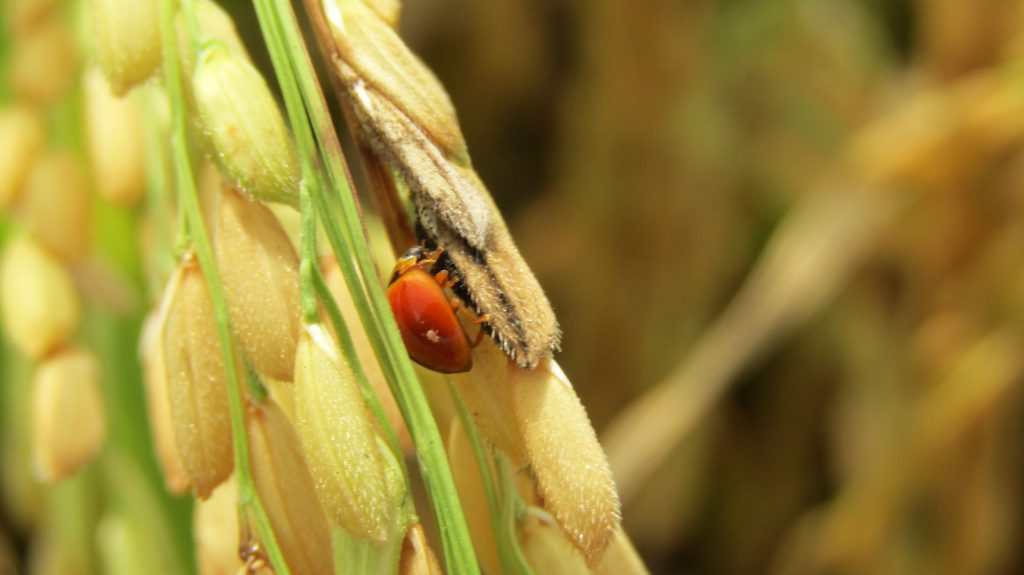
Writer: Nguyen Ngoc Son, Project Officer for Land and Agriculture, GIZ Vietnam
In order to make sure the residue found in rice is under the permissible level, over 60 Vietnamese small-scale farmers in An Giang of southern Vietnam are enhancing their knowledge and skills in Integrated Pest Management (IPM) farming approaches.
They are also following 41 requirements of the Sustainable Rice Platform (SRP) which cover farm management, water use, pest management, nutrient management, post-harvest practices, even labor practices.
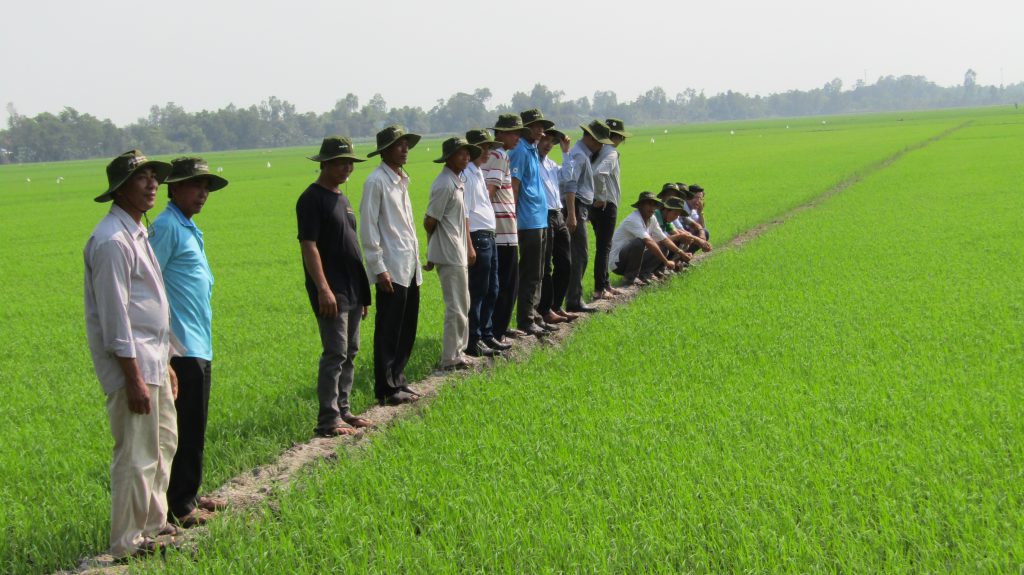
“I am one among the first farmers who tried on the practices recommended by the SRP. Our cooperative members have followed the maximum residue levels (MRL) norms and they will soon be able to tell the differences,” Mr. Nguyen Van Ngo, a 48-year-old farmer and leader of Tan Tuyen Farmer Group shared his thought.
This year, 3,600 new farmers and 48 trainers in four provinces of Mekong Delta are expected to apply these social and environmental sustainability standards to ensure food safety after the importing countries have raised their maximum residue limit.
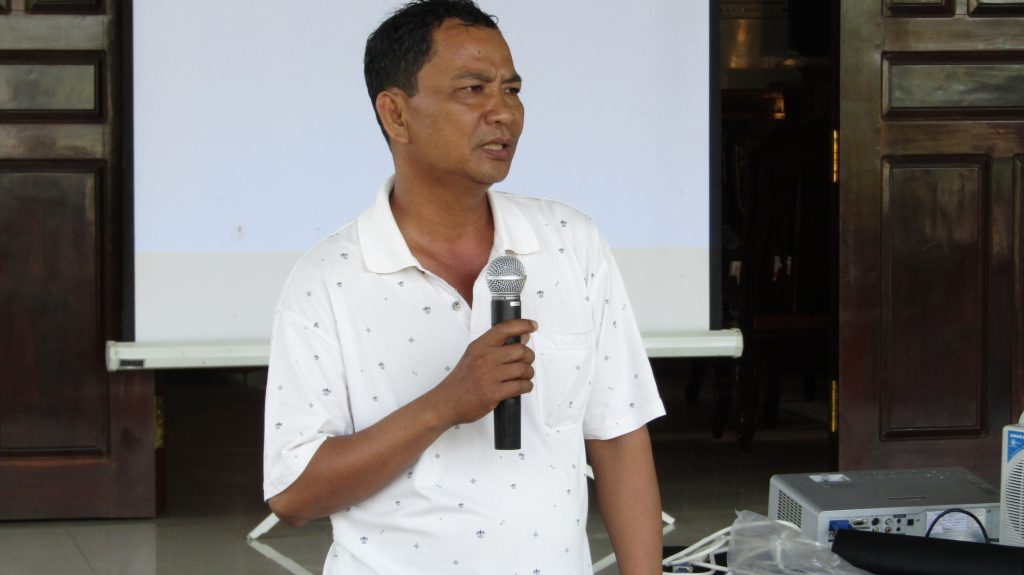
Between December 2019 and February this year, two demonstration plots have been established in An Giang province, so farmers can try out new farming practices that help them reduce the use of the toxic pesticides and practice BRIA-recommended guideline on integrated pest management.
In the meantime, the importance of health of rice growers and safety regulations is also stressed.
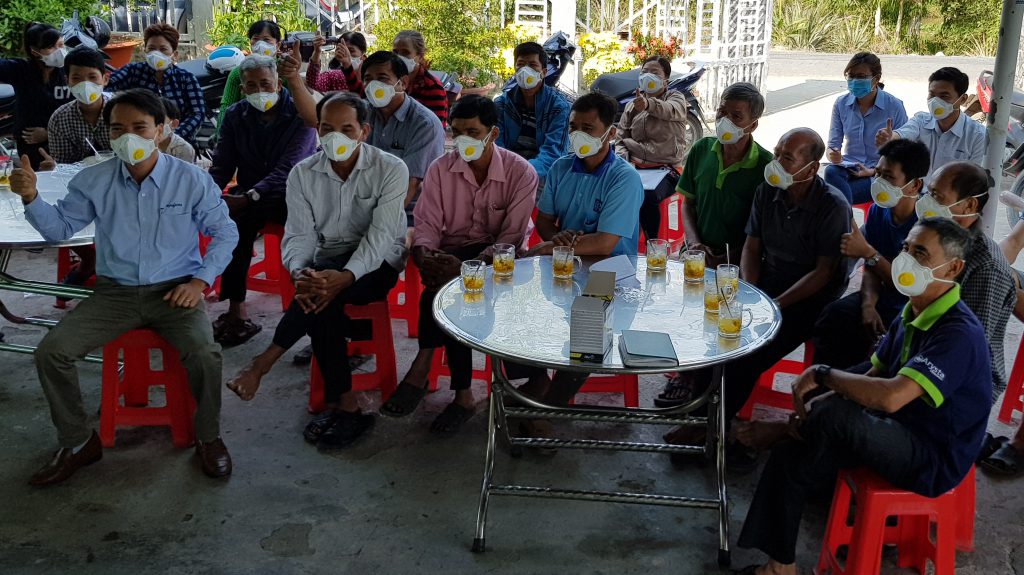
“Besides the farming management, we also take care of farmers’ health by explaining the potential benefits of wearing the personal protection equipment (PPE) and the cleaning of implements and machinery,” said Dr. Pham Quang Thuyen, Lead of Syngenta’s Sustainable Solution Team.
While Ms. Nguyen Thi Thanh Tram from Olam International said close cooperation among farmers, local government and her company will drive the project that aims to improve the livelihoods of local farmers to success.
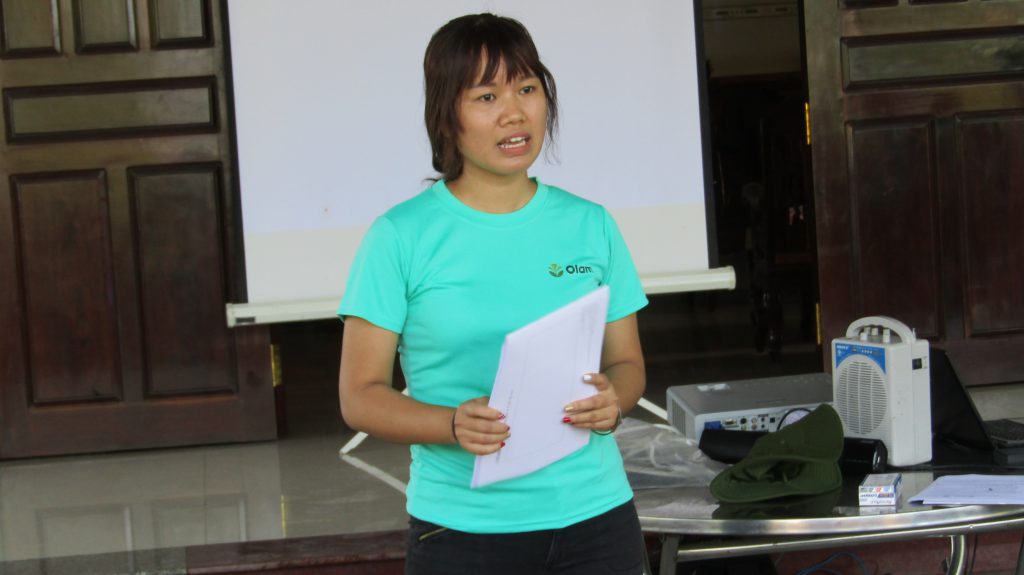
“Olam is one of the leading rice buyers in Vietnam, putting sustainability at our heart of our business. We want to bring about the good-quality rice product, promote SRP-certified from Vietnam in importing countries like USA and European countries.”
The local farmers are members of Better Rice Initiative in Asia (BRIA) Project which aims to improve market access for resource-poor rice farmers in four provinces – Can Tho, An Giang, Bac Lieu and Dong Thap.
